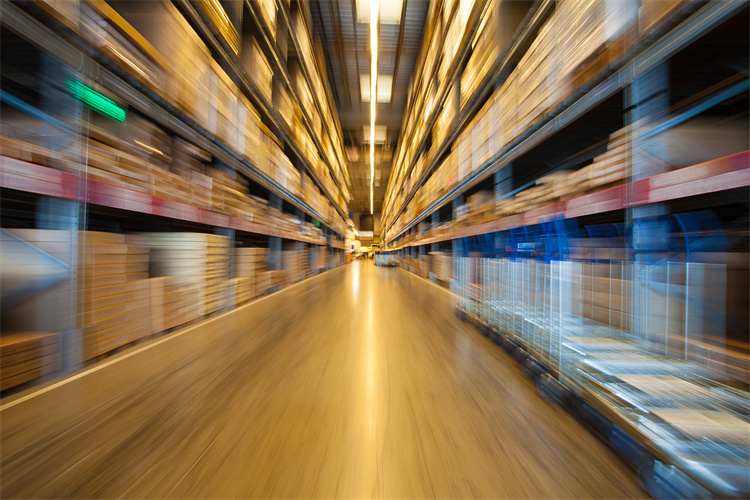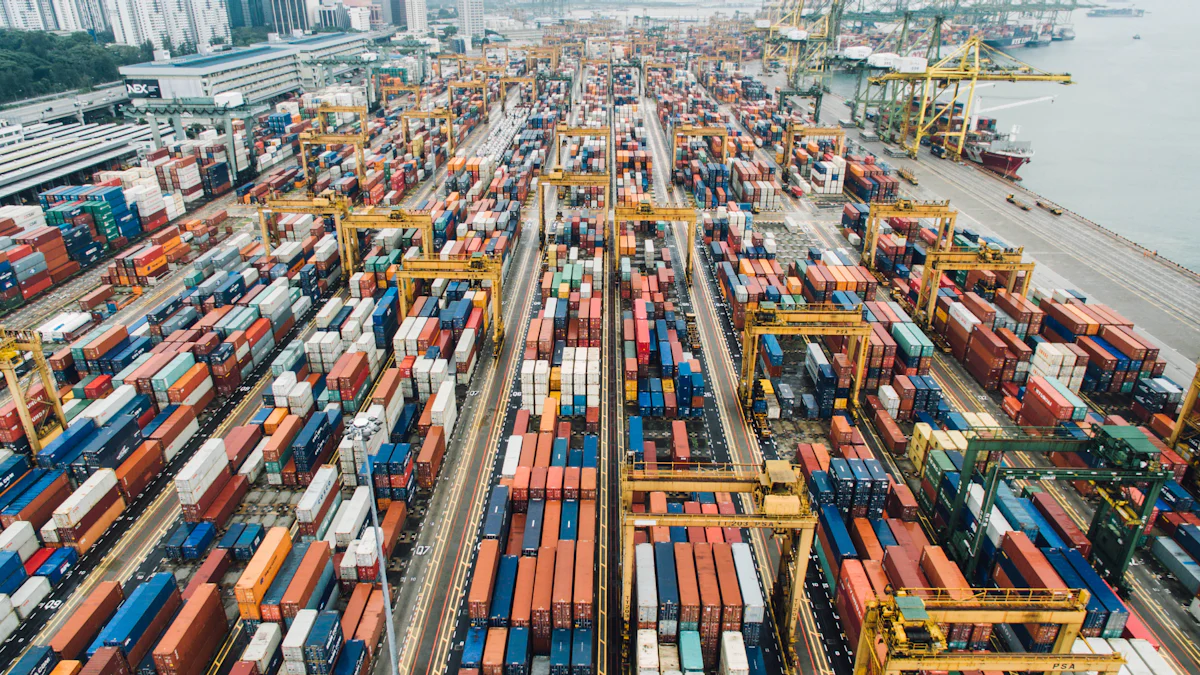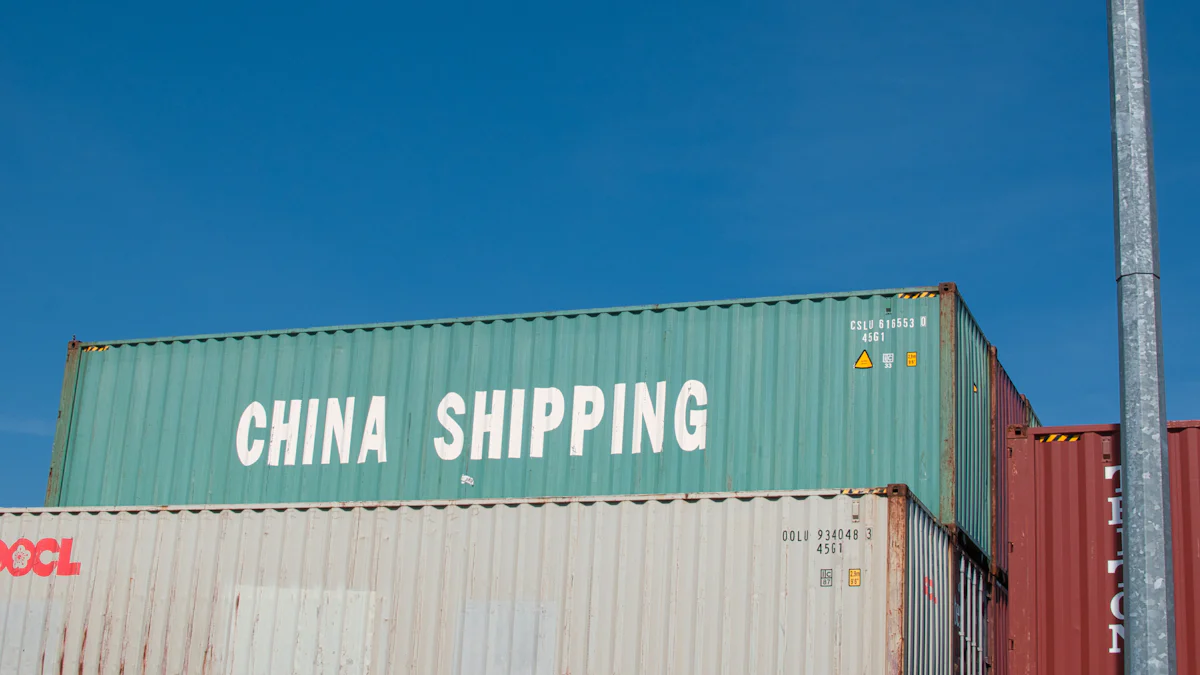Harnessing IoT for Smart Logistics Solutions

The Internet of Things (IoT) has emerged as a transformative force across various industries. IoT technology enables seamless connectivity and data exchange between devices, enhancing operational efficiency. The logistics sector stands on the brink of a revolution, driven by IoT advancements. IoT in logistics offers real-time tracking, improved decision-making, and optimized operations. The global IoT-powered logistics market is projected to grow significantly, reflecting its increasing importance. Companies like JUSDA leverage IoT to provide real-time data, transforming supply chain management.
Understanding the Internet of Things (IoT)
Definition and Components of the Internet of Things (IoT)
The Internet of Things (IoT) represents a network of interconnected devices that communicate and share data. These devices range from simple sensors to complex machinery, each playing a role in this expansive ecosystem.
Sensors and Devices
Sensors and devices form the backbone of the IoT infrastructure. These components gather data from their surroundings, enabling real-time monitoring and control. For example, temperature sensors in logistics monitor container conditions, ensuring optimal transport environments for sensitive goods.
Connectivity and Networks
Connectivity and networks facilitate communication between IoT devices. Technologies like RFID tags and GPS sensors provide logistics companies with the ability to track shipments and monitor conditions. This connectivity ensures seamless data flow across the supply chain, enhancing transparency and efficiency.
Data Processing and Analytics
Data processing and analytics transform raw data into actionable insights. IoT devices collect vast amounts of information, which is then analyzed to make informed decisions. This process allows businesses to optimize operations, improve performance, and predict future trends.
Current Trends in the Internet of Things (IoT)
The Internet of Things (IoT) continues to evolve, influencing various industries with its innovative applications.
Adoption in Various Industries
Industries worldwide embrace IoT technology for its operational benefits. In manufacturing, IoT offers pathways to agility and cost-effectiveness. Logistics companies utilize IoT for real-time data acquisition, improving supply chain management and operational performance.
Technological Advancements
Technological advancements drive the growth of IoT applications. Wireless devices, such as RFID tags and GPS sensors, enhance logistics operations by providing real-time location tracking and condition monitoring. These innovations enable predictive maintenance, reducing downtime and increasing reliability.
IoT Applications in Logistics by JUSDA

Real-time Tracking and Monitoring
The Internet of Things (IoT) plays a crucial role in enhancing real-time tracking and monitoring within logistics. JUSDA employs IoT technology to revolutionize fleet management. GPS sensors and RFID tags provide precise location data for vehicles. This data allows logistics managers to optimize routes and reduce fuel consumption. Fleet management becomes more efficient with real-time insights into vehicle performance.
Inventory tracking benefits significantly from the Internet of Things (IoT). Sensors monitor stock levels in warehouses. Automated alerts notify managers when inventory reaches critical levels. This proactive approach prevents stockouts and ensures timely replenishment. Inventory tracking with IoT technology enhances supply chain transparency and efficiency.
Automation and Efficiency
Automation transforms logistics operations through the Internet of Things (IoT). JUSDA utilizes IoT-driven automated warehousing solutions. Robotics and sensors streamline warehouse processes. Automated systems handle tasks such as sorting and picking. This reduces human error and increases operational speed. Automated warehousing leads to significant cost savings and improved productivity.
Predictive maintenance is another key application of the Internet of Things (IoT) in logistics. IoT devices collect data on equipment performance. Advanced analytics predict potential failures before they occur. This approach minimizes downtime and extends the lifespan of machinery. Predictive maintenance ensures continuous and reliable logistics operations.
Enhanced Customer Experience
The Internet of Things (IoT) enhances customer experience in logistics. Improved delivery times result from real-time data analysis. IoT technology enables precise tracking of shipments. Customers receive accurate updates on delivery schedules. This transparency builds trust and satisfaction among clients.
Personalized services become possible with the Internet of Things (IoT). IoT devices gather data on customer preferences and behaviors. Logistics companies tailor services to meet individual needs. Personalized services enhance customer loyalty and engagement. The Internet of Things (IoT) empowers businesses to deliver exceptional value to their clients.
Benefits of IoT in Logistics

Cost Reduction
Operational Efficiency
The implementation of IoT in logistics enhances operational efficiency. IoT devices provide real-time data, allowing logistics managers to make informed decisions. This data-driven approach reduces delays and improves workflow. Companies experience fewer disruptions in their supply chain operations. Enhanced operational efficiency leads to significant cost savings.
Resource Optimization
Resource optimization becomes achievable with IoT technology. Sensors monitor the usage of resources such as fuel and energy. This monitoring helps identify areas for improvement. Logistics companies can reduce waste and allocate resources more effectively. Optimized resource usage contributes to lower operational costs.
Increased Safety and Security
Risk Management
IoT technology plays a crucial role in risk management. Real-time monitoring allows for quick identification of potential issues. Logistics managers can address risks before they escalate. This proactive approach minimizes disruptions and ensures smooth operations. Effective risk management enhances the overall safety of logistics processes.
Theft Prevention
Theft prevention becomes more effective with IoT solutions. GPS tracking devices monitor the location of shipments. Any unauthorized movement triggers alerts for immediate action. Logistics companies can prevent theft and secure valuable goods. Enhanced security measures build trust with clients and partners.
Sustainability and Environmental Impact
Reduced Carbon Footprint
IoT technology contributes to a reduced carbon footprint in logistics. Optimized routes minimize fuel consumption and emissions. Sensors monitor vehicle performance to ensure efficient operation. Logistics companies can achieve sustainability goals through greener practices. A reduced carbon footprint benefits both businesses and the environment.
Energy Efficiency
Energy efficiency improves with IoT integration. Smart sensors track energy usage in warehouses and facilities. This data helps identify opportunities for energy conservation. Logistics companies can implement energy-saving measures to reduce costs. Improved energy efficiency supports sustainable business practices.
The Internet of Things (IoT) demonstrates transformative potential in logistics. IoT enhances inventory management, optimizes routes, and enables preventive maintenance. Businesses gain a competitive edge by adopting IoT solutions. IoT devices provide real-time insights into transportation and warehouse operations. This technology ensures a seamless flow of data throughout the supply chain. Future developments in IoT promise further advancements in logistics efficiency. Companies like JUSDA lead the way with digital innovations. These advancements create a more responsive and resilient supply chain. Adopting IoT solutions positions businesses for success in an evolving industry.
See Also
Exploring AI's Hidden Power in Logistics
Tomorrow's Logistics Revolution with AI
Navigating Future Logistics Using Digital Tech
